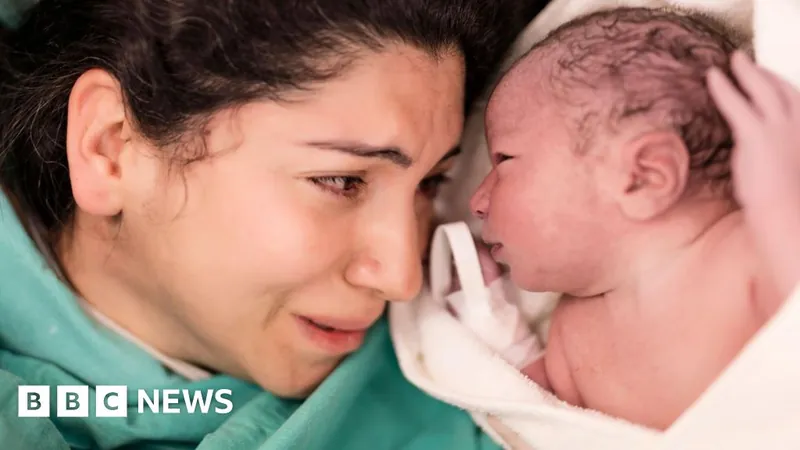
Shocking Surge: 25% of Babies in England Delivered via Caesarean Section!
2024-12-16
Author: Chun
Recent NHS Data Reveals Shocking Trend
Recent NHS data has revealed a striking trend: one in four babies born in England now arrives via Caesarean section, marking a significant increase over the past decade. This statistic has raised crucial questions about maternal health and birthing choices in the country.
Factors Contributing to the Surge
Experts attribute this rising rate to several factors. Notably, the surge in 'complex' pregnancies linked to an aging population and rising obesity rates among expecting mothers is a major concern. Dr. Ranee Thakar, president of the Royal College of Obstetricians and Gynaecologists (RCOG), underscores that women choosing to have children later in life often face increased risks that can lead to complications during childbirth.
Comparison to Previous Years
In stark contrast, just a decade ago, only 13% of deliveries in 2013-14 were Caesarean. This past year, out of 398,675 recorded deliveries by the NHS, a staggering 101,264 (25%) were Caesarean sections, with over two-thirds of these being planned procedures. This shift highlights evolving perceptions and choices regarding childbirth, with some mothers opting for C-sections for non-medical reasons, sparking debate over maternal autonomy in birthing methods.
Maternal Age and Delivery Methods
The likelihood of requiring a Caesarean rises significantly with maternal age—mothers over 39 are now more likely than ever to deliver via this method. Conversely, younger women (under 30) continue to have more spontaneous vaginal births, often without medical intervention. Interestingly, approximately one-third of all deliveries were induced, often using artificial methods to stimulate labor.
NHS Guidelines and Women's Choices
While the RCOG does not advocate for one birthing method over another, the recent change in NHS guidelines has given women more control over their delivery options. Previously, hospitals aimed to keep C-section rates around 20%, but NHS authorities have since advised that women may opt for planned Caesareans when deemed safe.
Commitment to Safe and Personalized Care
NHS representatives remind us that while a Caesarean is indeed a major operation with inherent risks, some women understandably prefer this route for personal reasons. They maintain that maternity teams across England are committed to offering safe, personalized care that aligns with evidence-based practices, striving to accommodate women's preferences regarding their birthing experiences.
Conclusion: The Ongoing Debate
As the debate continues, understanding the implications of this trend is crucial for future healthcare policies and maternal health initiatives. Will this increase in C-sections lead to a reevaluation of birthing practices, or continue as a growing norm among expectant mothers? As the landscape of childbirth evolves, one thing is certain: the conversation surrounding the safest and most effective ways to bring new life into the world is far from over.



 Brasil (PT)
Brasil (PT)
 Canada (EN)
Canada (EN)
 Chile (ES)
Chile (ES)
 España (ES)
España (ES)
 France (FR)
France (FR)
 Hong Kong (EN)
Hong Kong (EN)
 Italia (IT)
Italia (IT)
 日本 (JA)
日本 (JA)
 Magyarország (HU)
Magyarország (HU)
 Norge (NO)
Norge (NO)
 Polska (PL)
Polska (PL)
 Schweiz (DE)
Schweiz (DE)
 Singapore (EN)
Singapore (EN)
 Sverige (SV)
Sverige (SV)
 Suomi (FI)
Suomi (FI)
 Türkiye (TR)
Türkiye (TR)